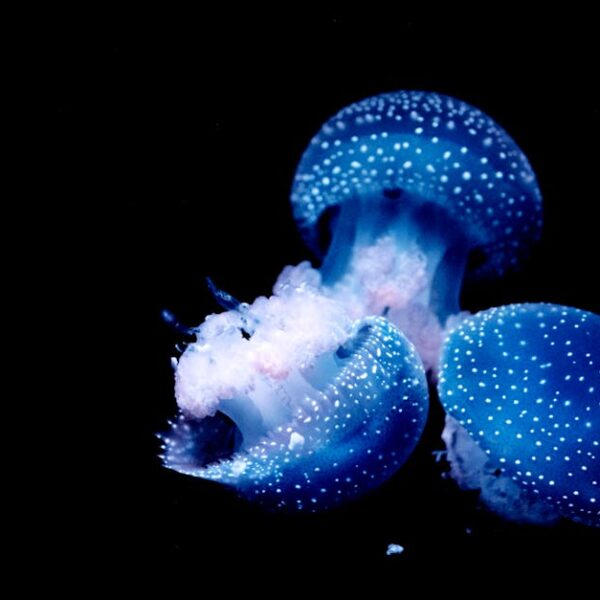The invigorating aroma of fresh laundry can be described as one of life’s simple pleasures. However, if you find yourself compulsively seeking or craving the scent of laundry detergent, it’s essential to understand what is behind these unusual urges and the potential risks they could pose.
The phenomenon of experiencing cravings for non-food items, such as the smell of laundry detergent, is not entirely understood. Some suggest it could be due to a deficient diet, certain medical conditions, or even psychological factors such as stress or anxiety. These urges can stem from various triggers, to the point where it becomes an irresistible compulsion to sniff or even consume laundry detergent.
Best practices for handling laundry detergents include keeping them out of reach when not in use, using only the recommended amount for each wash, and ensuring good ventilation in your laundry area to disperse detergent fumes.
One potential explanation for this craving is a condition known as Pica. This disorder is characterized by an appetite for substances that are largely non-nutritive, such as ice, clay, soil, or chalk. A link between Pica and cravings for laundry detergent is yet to be established, but it’s a possibility worth considering.
It’s crucial to be able to identify the symptoms of Pica, especially if you have a strong desire for non-food items like laundry detergent. Symptoms can include persistent eating of nonfood items over a period of at least one month, the ingestion of nonfood items is inappropriate to the level of development, and if this behavior is not a culturally supported or socially normative practice.
On the flip side of this delightful freshness hide potential health risks, largely due to the chemical compositions of many laundry detergents. These household essentials might contain a cocktail of potentially harmful ingredients flooding your nose with heady aroma.
Consuming or inhaling laundry detergent can harm your health. Scented and unscented laundry detergents pose different risks: while scented options can trigger allergies and have a strong smell due to chemicals, unscented versions may be less irritating but may also contain chemicals that go unnoticed due to the lack of scent.
Common health risks linked to exposure to laundry detergent chemicals can range from mild irritation to major health complications, such as skin and eye irritation, allergies, respiratory issues, and at worst, poisoning.
Pro Tip: Always keep detergents properly sealed in their original packaging and avoid direct contact with the skin to prevent the absorption of these chemicals into the body.
As cleanliness and fresh scent can bring comfort and relaxation, seeking intervention in the face of escalated cravings for laundry detergent smell is vital. There’s no shame in discussing this fascination with your healthcare provider. Medical intervention can help discern whether your cravings are a symptom of an underlying condition, nutrition deficiency, or are due to other factors.
Medical tests can be conducted to investigate serious cases, and treatments can be designed according to the root cause. Effective communication with healthcare professionals is key to treating and controlling this issue.
Is It Safe to Use Laundry Detergent if My Skin is Sensitive?
If you have sensitive skin, choosing the right laundry products is crucial. Washing powders for sensitive skin are specially formulated to minimize irritation and allergens. Always check labels for hypoallergenic ingredients, and consider performing a patch test with your laundry to ensure comfort and safety for your skin.
Alternatives to Satisfy Laundry Detergent Cravings Safely
Not all scents that make you feel delightful have to contain harmful chemicals. With a little creativity and the right ingredients, you can create safe alternatives to satisfy your cravings for laundry detergent smells.
One possibility is using aromatherapy scents and essential oils such as lavender, lemon, or peppermint, which are highly aromatic yet very natural. These oils can promote mental and physical well-being without the hidden health risks associated with laundry detergent chemicals.
Creating your own natural homemade laundry detergents is also a brilliant idea to consider. Numerous recipes are available online, most of them are straightforward and require common household ingredients like washing soda, borax, and bar soap.
Pros and Cons of Commercial Laundry Detergents vs. Homemade Variants
| Commercial Laundry Detergents | Homemade Laundry Detergents | |
|---|---|---|
| Smell Intensity | Highly Scented | Vary Depending on Ingredients |
| Chemical Content | Potentially Hazardous | No Harmful Chemicals |
| Cost | Varies, Usually Expensive | Much Cheaper |
| Availability | Easy To Find; Sold Everywhere | Requires Preparation |
Choosing safe alternatives to satisfy laundry detergent cravings:
- Plan to gradually reduce your exposure to the detergent smells
- Start incorporating essential oils or natural fragrances into your routine
- Research and prepare your own homemade laundry detergent
Best Practices: Ensuring safety when dealing with laundry detergents
To conclude, it’s of paramount importance to ensure safety when dealing with laundry detergents, especially if you find yourself drawn to its scent. Here are some tips:
- Always store laundery detergent out ofreach and sight, especially from children
- Avoid inhaling detergent fumes
- Avoid wearing freshly laundered clothes if you’ve noticed that triggers your cravings
- Limit the use of scented detergent and switch to fragrance-free or homemade versions
Finally, don’t let your unusual cravings go unnoticed. It’s always best to consult your healthcare provider, who can guide you in discerning the underlying reason for these cravings and developing an appropriate treatment plan. Remember, your health should always be your top priority!
Key Takeaway:
- Cravings for the smell of laundry detergent can potentially be associated with several factors including dietary deficiencies, medical conditions, or even psychological stressors.
- One possible explanation could be Pica disorder characterized by an appetite for non-food substances.
- Laundry detergents contain chemicals that may pose health risks, such as skin and eye irritation, respiratory issues, or potentially poisoning.
- If you can’t control your cravings, seek medical intervention to determine if this is a symptom of an underlying condition or due to other factors.
- Aromatherapy, essential oils, and homemade detergent are safe alternatives to satisfy cravings for detergent smell without compromising health.
Life’s simple pleasures should not compromise your health. It’s crucial to understand the source of unusual cravings such as the scent of laundry detergent and recognize potential risks. There’s no shame in seeking professional medical advice – it could be an opportunity to understand and improve your overall health situation.
FAQs
Q: Can craving the smell of laundry detergent indicate a deficiency in my diet?
A: Yes, cravings for non-food substances can sometimes be linked to nutritional deficiencies. However, a healthcare professional would be best suited to provide a definitive diagnosis after necessary tests.
Q: Can the smell of laundry detergent cause allergies?
A: Yes. Scented laundry detergents contain chemicals that can trigger allergic reactions in some people. Opting for fragrance-free or natural alternatives can be a safer choice.
Q: Is it dangerous to inhale laundry detergent fumes?
A: Prolonged or excessive inhalation of detergent fumes could potentially lead to respiratory issues, especially in people with pre-existing conditions. Always ensure adequate ventilation when handling laundry detergents.
Q: What are some potential health effects of Pica disorder?
A: Pica disorder can lead to several health risks, such as digestive issues, infection from consuming contaminated non-food substances, toxicity, or even potential harm to dental health.
Q: How can I safely satisfy my craving for detergent smell?
A: Essential oils and homemade natural laundry detergents may offer safer alternatives for satisfying your cravings. Their scents are potent yet free from the harmful chemicals found in commercial detergents.
Explore more posts on our website to gain further insights, and don’t forget to share this article to spread awareness.












